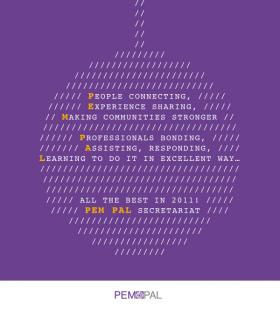Applications are invited for grants to support public financial management in Europe and Central Asia under the SAFE Trust Fund.
The deadline for proposals is 18 December 2013.

The SAFE Trust Fund group includes two pools of funds to provide support for activities led by governments to assess public financial management (PFM) performance, identify and implement actions to achieve improvements in public financial management and share knowledge and good practices across countries in the Europe and Central Asia region:
Pool 1 - is a multi-donor trust fund established by the Swiss State Secretariat for Economic Affairs (SECO) which is open to projects from Albania, Armenia, Azerbaijan, Belarus, Bosnia and Herzegovina, Croatia, Georgia, Kazakhstan, Kosovo, Kyrgyz Republic, Macedonia, Montenegro, Moldova, Serbia, Tajikistan, Turkey, Turkmenistan, Ukraine and Uzbekistan.
Pool 2 - is a single donor trust fund established by the European Commission through the multi-beneficiary instrument for pre-accession (MB IPA) which is open to projects from Albania, Bosnia and Herzegovina, Croatia, Macedonia, Montenegro, Serbia and Kosovo.
The Project Steering Committee will decide which Pool will be used to fund individual projects approved under the programme. The SAFE trust fund group is administered by the World Bank.
Objectives for the SAFE Trust Fund
The SAFE trust fund group seeks to improve the status of PFM in participating beneficiaries in a systematic way through:
i. improving understanding of PFM status in target beneficiaries;
ii. supporting design, implementation and management of the PFM reform agenda by governments, particularly on reform activities that are being undertaken simultaneously across the region;
iii. developing shared knowledge and experience on PFM reform to strengthen reform effectiveness and focus development partner support; and
iv. improving coordination between donors and their relationships with governments; towards limiting overlaps, and concentrating declining donor support in the region.
Eligible activities
There are three Pillars for SAFE funded projects. Pillar I: Assessment of PFM status, Pillar II: Support for PFM reform management and Pillar III: Expanding PFM knowledge and capability. The current SAFE Trust Fund grant seeks for highlight Pillar III:
Pillar III: Expanding PFM knowledge and capability
· Analysis of progress and outcomes in specific beneficiaries as well as cross-cutting perspectives;
· Benchmarking and comparative analysis, involving studies of progress against specific indicators or groups of indicators, facilitation of working groups across beneficiaries to explore differences and identify practical actions to address weaknesses in one or more location;
· Wider experience and knowledge sharing, including provision of forums for exchange of information and experience, and joint activities to address common development priorities in PFM across the region.
Project selection criteria
- Consistency with SAFE objectives and program outcomes;
- Activities are within the scope of the Pillars and within available funds. Minimum project size for SAFE is $50,000 and maximum is $200,000;
- Demonstrable improvements in understanding, standards or capability in relation to one or more dimensions of the PEFA framework or associated aspects of PFM and accountability;
- Consistency with potential recipient development priorities, policies and strategic development plans and, where appropriate, donor strategies and agreements;
- Do not duplicate, conflict or overlap with projects financed through other programs;
- Have potential benefits for one or more country in terms of knowledge or experience sharing or scope for comparative assessment where possible and ideally have a regional benefit; and
- Project expenditures must be incurred within the timeframe of SAFE operations, which at present is until 30 June 2015.
Deadline for applications
Applications for projects commencing in 2014 will close on 18 December 2013. Decisions on successful proposals will be made in February 2014 and funds will be available shortly thereafter. A new window for applications will be opened approximately every six months until funds are fully committed or the trust fund closes, whichever comes first.
Where to obtain application forms
SAFE_project_proposal_Form_13.10.31.docx
Invitation_for_proposals_13.10.31.docx
Further information
Lewis Hawke
Secretariat, SAFE
The World Bank MSN MC7-714
1818 H Street NW
Washington DC 20433 USA
Tel: +1 (202) 473-6746
Email: lhawke@worldbank.org



 Dear PEMPAL members,
Dear PEMPAL members, She has 22 years professional experience in public expenditure management specializing in budget planning, preparation and execution. Her 15 years at the national and sub-national levels of Government in Australia included contributing to the preparation of the Australian Government Budget and advising Ministers on policy options and recommendations in health, social welfare and mining related sectors. For the last seven years, she has coached and advised Ministries of Finance for USAID and DFID funded projects in Kosovo, Afghanistan and currently Bosnia and Herzegovina.
She has 22 years professional experience in public expenditure management specializing in budget planning, preparation and execution. Her 15 years at the national and sub-national levels of Government in Australia included contributing to the preparation of the Australian Government Budget and advising Ministers on policy options and recommendations in health, social welfare and mining related sectors. For the last seven years, she has coached and advised Ministries of Finance for USAID and DFID funded projects in Kosovo, Afghanistan and currently Bosnia and Herzegovina.